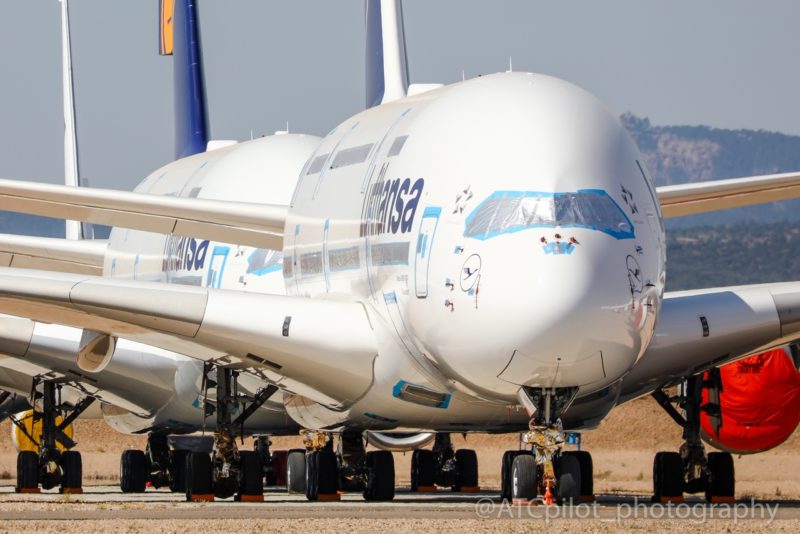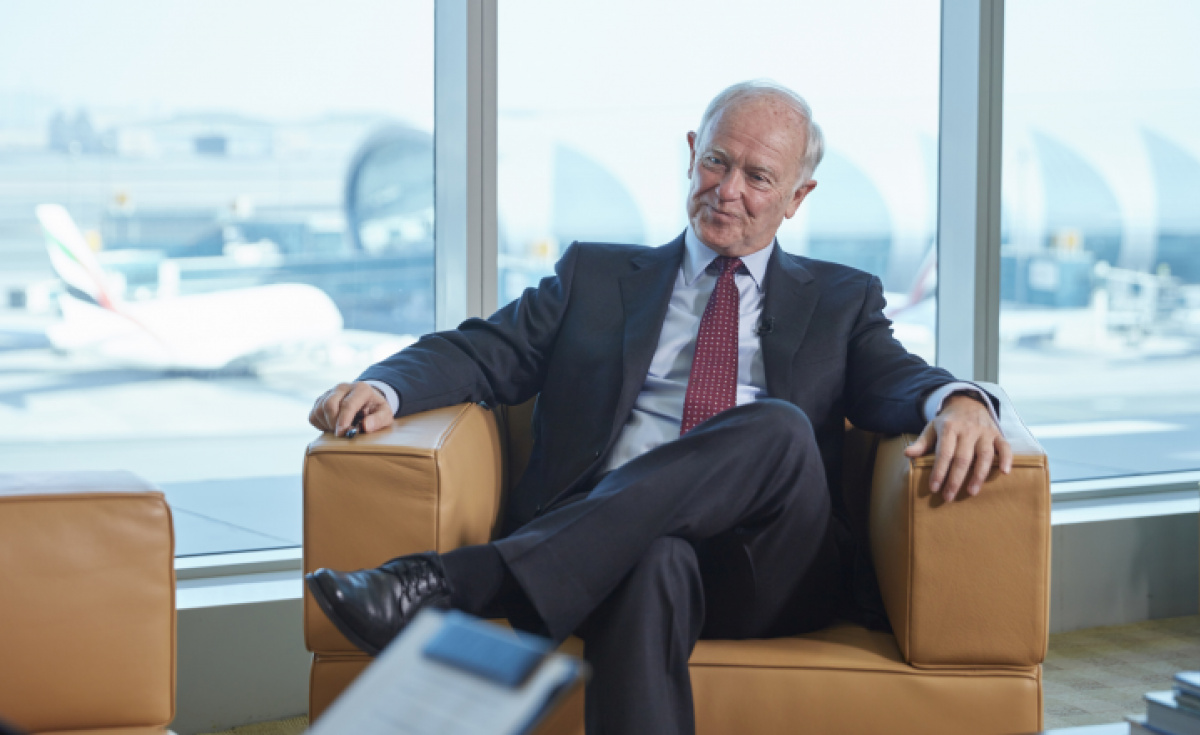The world’s largest Airbus A380 operator, Emirates, is likely to get more out of their superjumbos after the pandemic, when most global airlines are expected to permanently retire or store the A380 from their fleets.
That is according to Sir Tim Clark, who said that Emirates’ A380s still have a huge role to play in the airline’s business model in the future in spite of COVID-19.
Sir Tim told Aviation Business in an exclusive interview “[A380s] remain hugely popular with the travelling public. And with less of them around now I should think we will do particularly well with this aeroplane when we get them all flying again”.
Emirates grounded their fleet of 115 double-decker aircraft in March 2020, following COVID-19 related border closures, and has only reintroduced the jet on a select number of routes, such as London, Moscow, Guangzhou, Cairo, Jeddah and Amman.
All other A380 operators, including Air France, Lufthansa, Qantas, Qatar Airways and Etihad, have already decided to either retire or put their A380s into long term storage from their fleets, saying that the aircraft is too expensive to run in the wake of the pandemic. They will instead focus on newer, more efficient widebody jets like the Boeing 787 and the Airbus A350.

Emirates too has opted for new A350s, 787s and 777Xs following the discontinuation of the Airbus superjumbo, but the airline still has eight A380s on order. As one of the few airlines to have crafted a business model capable of operating A380s profitably, Emirates does not have any plans to drastically restructure their fleet set-up any time soon.
Sir Tim confirmed that Emirates are proceeding with their delivery schedule, with one A380 being delivered in November and another arriving in December.
Sir Tim said he could not see another aircraft in the future impacting on Emirates at the same level as the A380 has.
“The A380 was probably the best thing that could have happened to Emirates and certainly Dubai” he said.
“We value it enormously, we regret the fact it’s gone out of production, but that is testament to the strength of our business model, where others have tried to use it and failed.”
Sir Tim Clark, President of Emirates Airline
“It’s been enormously successful for us, in many, many ways, directly and indirectly. So we will have to manage eventually the departure of the aeroplane. But we’re a long way off from that.”
Emirates A380 to serve London Heathrow 4 times daily, Manchester 6 times a week, and Moscow daily
Emirates announced plans to operate its popular A380 aircraft four times a day to London Heathrow from 27 November and six times a week to Manchester from 2 December, and to deploy additional A380 services to Moscow from the current two-a-week, to a daily service from 25 November.
These represent a significant expansion of Emirates services to the UK, following the recent establishment of the UK-UAE air travel corridor which has led to increased demand. Under the air travel corridor, travellers entering the UK from the UAE will not longer be required to quarantine, which is a boon for travellers, and speaks to the UAE's rigorous and effective pandemic response. In the other direction, UK travellers heading to Dubai can opt to do their COVID-19 PCR tests 96 hours in advance of their flight, or to do the test on arrival in Dubai, adding to the ease of travel.
Emirates SkyCargo Operating A380 Cargo Flight
Emirates SkyCargo has started utilising their Airbus A380 aircraft on select cargo charter operations, to transport urgently required cargo across their network. The first dedicated Emirates A380 'mini-freighter' successfully transported medical supplies between Seoul and Amsterdam via Dubai.
Source: Aviation Business Middle East


